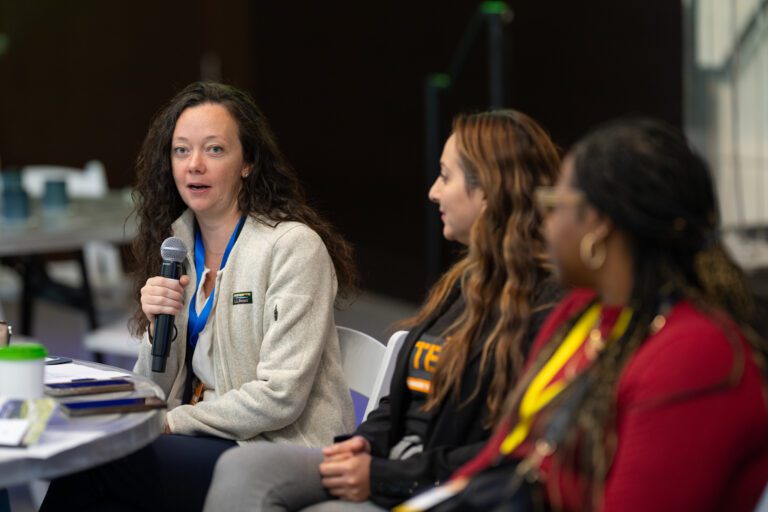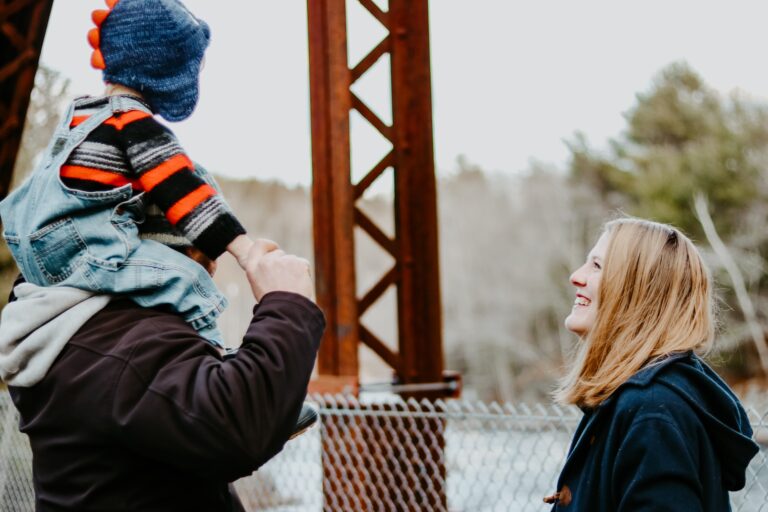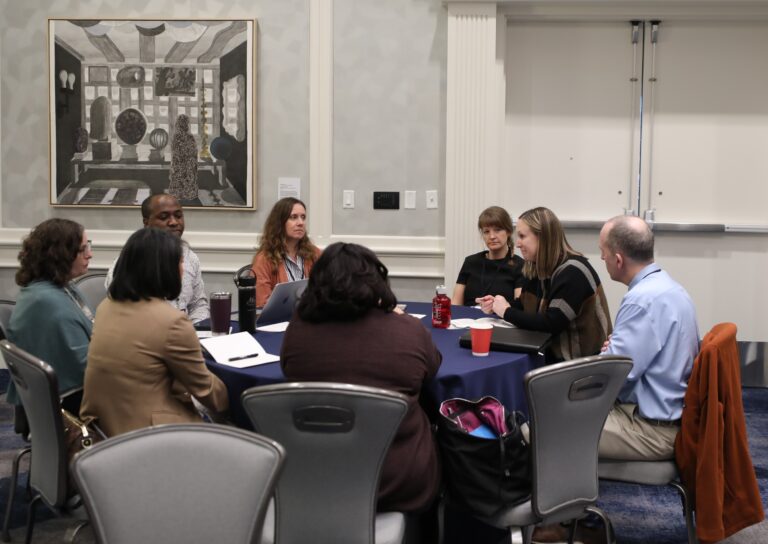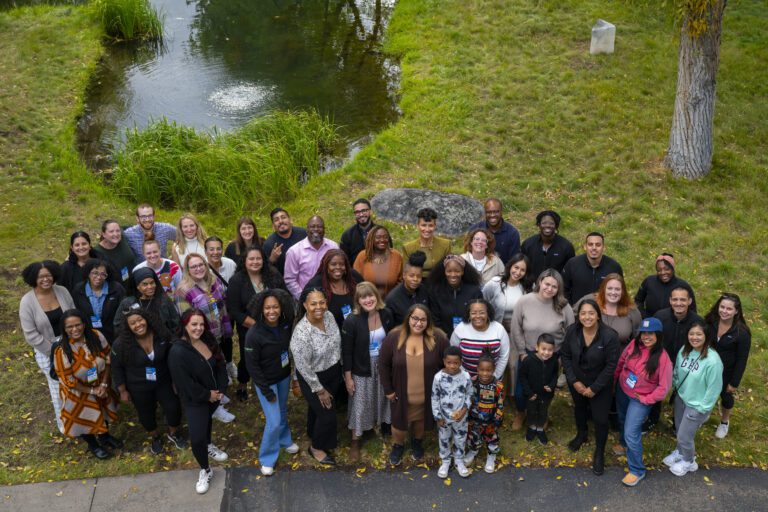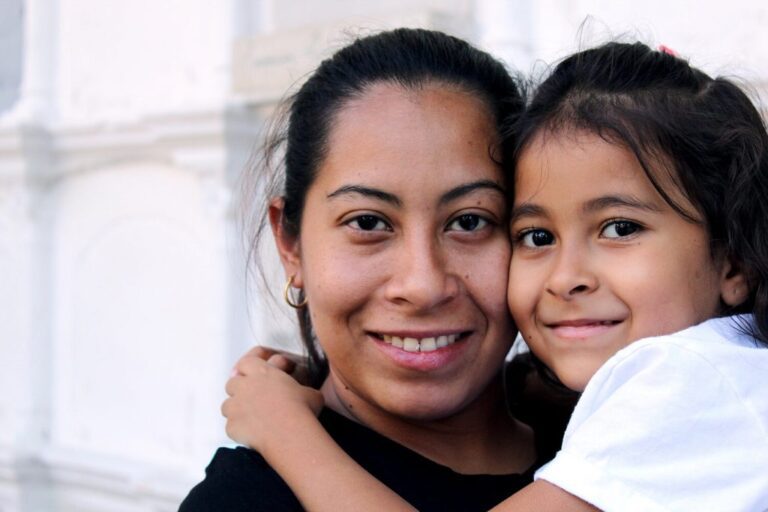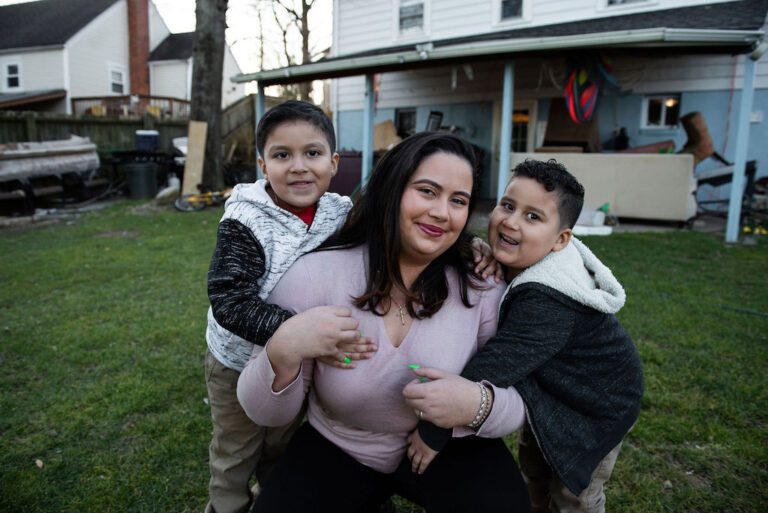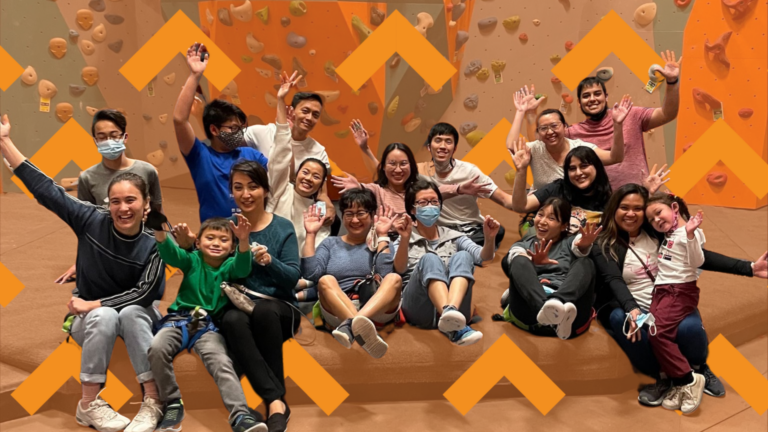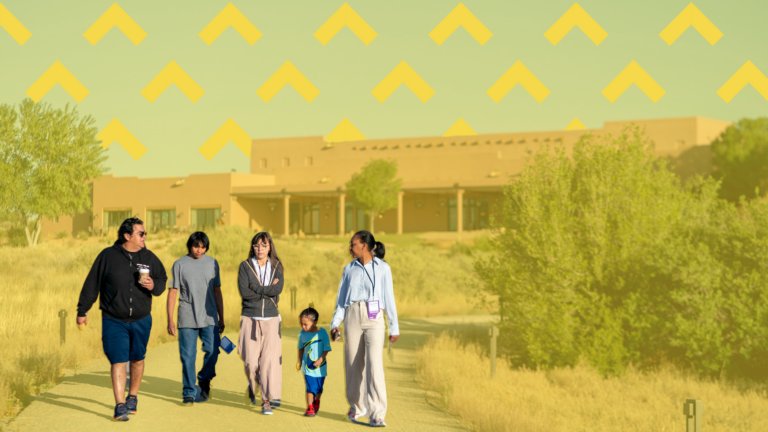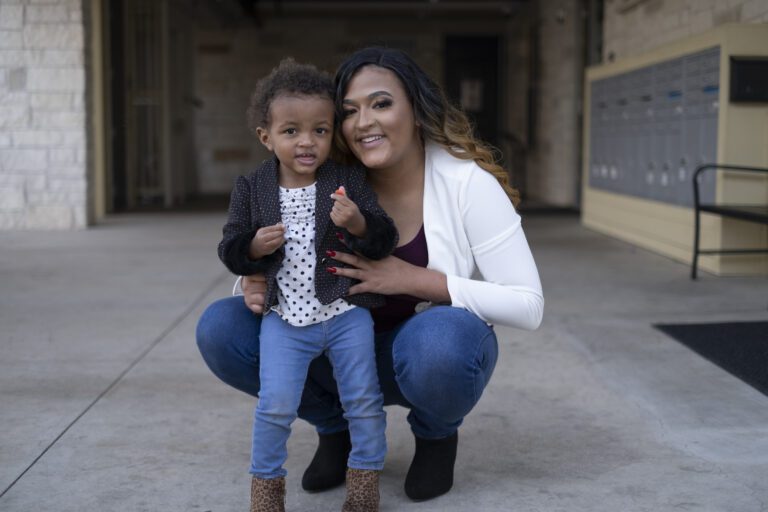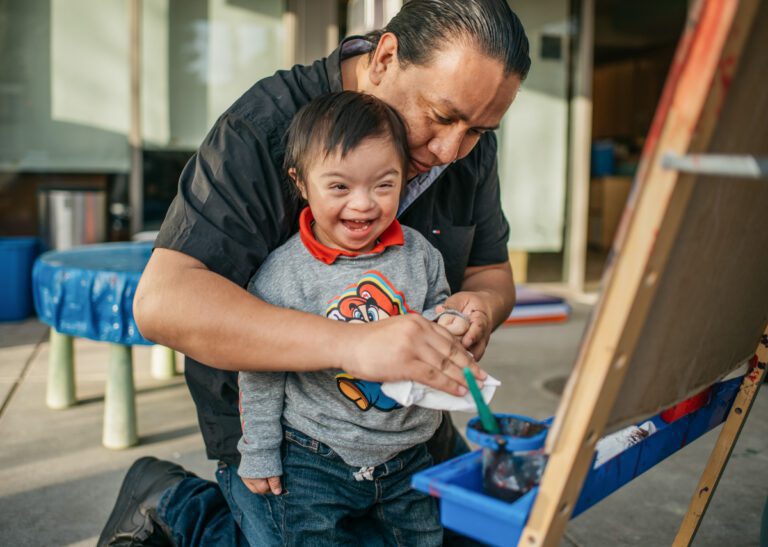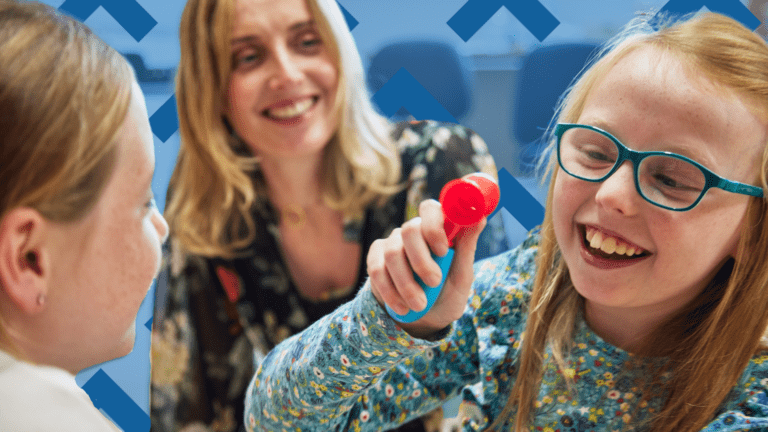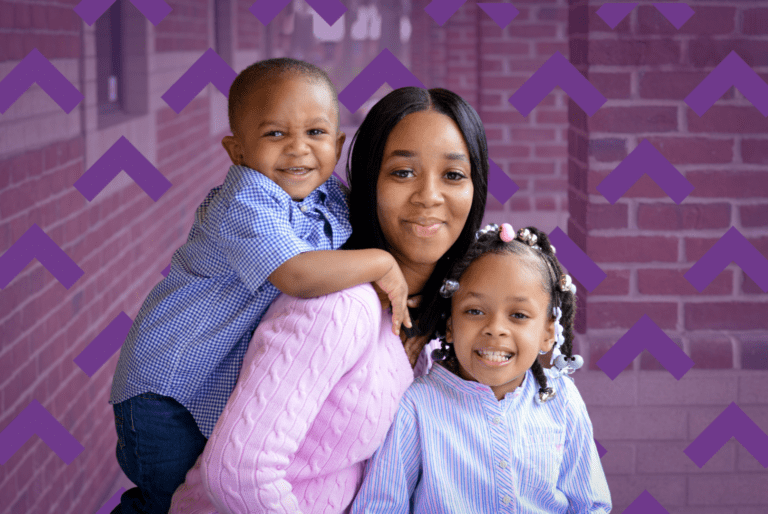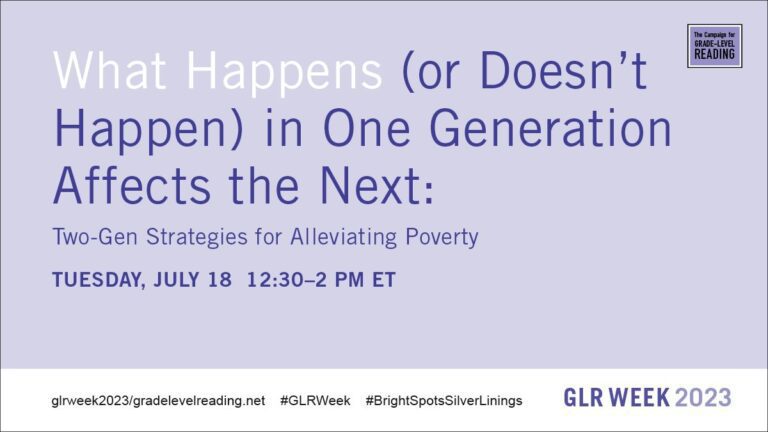The Secret Sauce: Strategies to Include Social Capital in Human Services
Social capital is the “secret sauce” of the two-generation (2Gen) approach. It manifests itself as increased peer support and a sense of community; connections to family, friends, and neighbors; participation in community and faith-based organizations; school and workplace outreach; leadership and professional development programs; engagement with case managers or career coaches; and other social networks such as cohort models and learning communities. It produces information, emotional or financial support, and/or other resources.
On September 28, 2020, Ascend hosted a webinar in partnership with the U.S. Department of Health and Human Services Office of the Assistant Secretary for Planning and Evaluation (ASPE) to discuss social capital and how to include this important core component of the 2Gen approach in human services.
Research shows that individuals with higher levels of social capital are happier and healthier, find better jobs, and live longer. Communities with higher levels of social capital have higher educational achievement, faster economic growth, and less crime. Many human services strategies may leverage social capital, but there is little research on how those programs can more intentionally understand, track, and use social capital to support families as they build their well-being. We sought to explore existing research around this topic while surfacing emerging practices and policy solutions to integrate social capital building in programs and initiatives.
During this webinar, we heard from Marjorie Sims, Managing Director at Ascend about why social capital is so important for the success of the 2Gen approach. She was followed by Charles Keckler, Senior Advisor at the Immediate Office of the Secretary, U.S. Department of Health and Human Services (HHS) who explained why social capital became an important area of research for HHS, and Sofi Martinez, Social Science Analyst at ASPE who introduced The Value of Relationships: Improving Human Services Participant Outcomes Through Social Capital, a handbook on social capital for humans services. Janae Bradford, Assistant Director for Family Advancement and Diana Campos, Parent Ambassador at CAP Tulsa rounded out the presentations to showcase emerging practices for how practitioners using a 2Gen approach can help participants build and leverage their relationships to reach their goals.
Please find the webinar presentation here. Additionally, presenters shared several resources with attendees, which we included below.
Resources from ASPE:
- The Value of Relationships: Improving Human Services Participant Outcomes Through Social Capital (June 2020) – ASPE’s handbook on social capital for human services.
- The Value of Social Capital During The COVID-19 Pandemic – This memo outlines some of the strategies available to support social capital during the COVID-19 crisis by leveraging connections and accessing tangible and intangible resources. Suggested strategies include using technology, providing structured ways to connect, offering peer groups or other program activities in non-traditional ways, and engaging qualified alumni and individuals.
- Strengthening Human Services Through Social Capital – This project, done in partnership with Research Triangle Institute and the University of North Carolina School of Government, seeks to understand how local, state, faith-based, and nonprofit human services programs and organizations can create and use social capital to increase employment, reduce poverty, and improve child and family well-being. It includes various resources and memos as well as case studies about human services programs that are helping participants build and use social capital in diverse ways.
- Measuring Social Capital in Human Services Programs (December 2019) – This brief discusses findings on the importance of measuring social capital, the purposes for doing so, and examples of how programs both inside and outside of the U.S. Department of Health and Human Services (HHS) measure it (Access accompanying webinar here).
- How Human Services Programs Can Use Social Capital to Improve Participant Well-Being and Economic Mobility – ASPE’s Social Capital Landing Page.
Resources from Ascend:
- Social Capital Leads to Postsecondary Innovation (April 2019) – In this blog post, Ascend Parent Advisor Lesley Del Rio discusses how social capital can be a tool to support parents in their postsecondary journeys.
- Promoting Parents’ Social Capital to Increase Children’s Attendance in Head Start: Evidence from an experimental intervention (January 2017) — In this study, authors conducted a randomized control trial in a major northern city to evaluate the impact of a low-cost intervention designed to promote parents’ social capital as a potential influence on children’s attendance in Head Start centers.
- Home-Grown Social Capital: How Higher Education for Formerly Incarcerated Women Facilitates Family and Community Transformation (September 2015) – This study explains how higher education for formerly incarcerated women facilitates family and community transformation. Using the two-generation lens, it reflects the way women and men in communities affected by incarceration experience family relationships.
- Fellows Anthology (April 2015) — A collection of pieces that offers insights into “2Gen 2.0” approaches spearheaded by 20 Ascend Fellows who are also leaders from across sectors, including the fields of human services, mental health, justice-involved families, and early childhood. In these pieces, you will find examples of how these leaders leveraged social capital to improve the impact of their programs.
Additional Resources Cited:
- The Northwestern University Two-Generation Research Initiative: This initiative housed at the Institute for Policy Research develops and evaluates programs which strategically align early childhood education services for children with workforce training for their parents. In this website you can find four studies evaluating different CAP Tulsa programs.
- Arizona Self Sufficiency Matrix: Resource used to measure social capital.
Please reach out to Eddy Encinales at eddy.encinales@aspeninstitute.org or Sofi Martinez at sofi.martinez@hhs.gov for more information on the resources provided.
Related Posts
